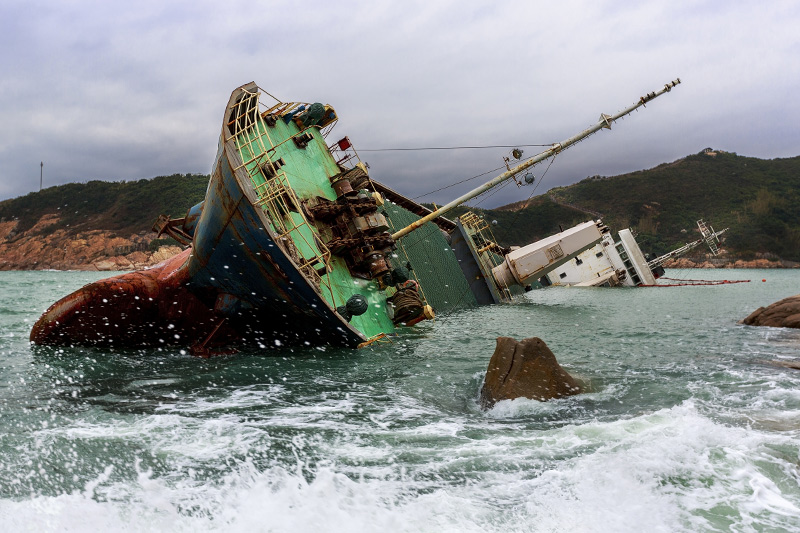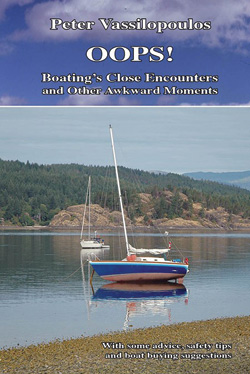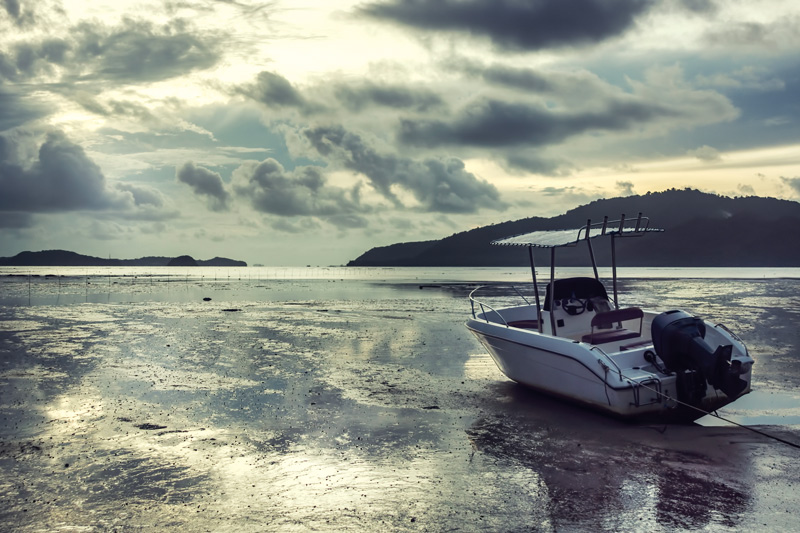
OOPS! Boating’s Close Encounters and Other Awkward Moments;
by Peter Vassilopoulos
One of my first boating memories is the image of a family friend’s Ranger 24 on its side on the beach at low tide. He pulled up to our family’s summer cabin on Hood Canal, dropped anchor, and went to sleep. The early morning low tide left the boat sitting on the sand and eel grass. An easy-going guy, my dad’s friend Tim just took the opportunity to clean the bottom of the hull while he waited for the tide to come back in. No harm, no foul.
They say that there are two types of boaters, those who have gone aground, and those who will go aground. Sooner or later, a little error in navigation or lack of attention will catch up with you. In my years of boating, I have bounced off the bottom a few times and had some not so proud moments getting in and out of a slip or two. I have been lucky. The incidents resulted in little more than a fun story to share over a pint or two.
In Peter Vassilopoulos’ new book OOPS! Boating’s Close Encounters and Other Awkward Moments, we are treated to the tales of a series of mishaps and mistakes, some serious and some benign. The book serves as a set of cautionary tales and sort of addendum to local guide books. The mostly first-person accounts are entertaining to read, but are meant to educate as well. The lessons gleaned from the book are mostly self-evident, but serve as a good reminder of how much attention needs to be paid to safely navigate the waters of the Pacific Northwest.
 The early chapters of the book are full of near collisions with commercial traffic, dragging anchors in the night, and miscalculating tide exchanges in the narrows of British Columbia. I found myself flipping over to my charts to see the areas Vassilopoulos writes about, and then opening up a cruising guide to see that most of the dangers he addresses aren’t mentioned anywhere else. On that level alone, his first-hand experiences provide valuable insights.
The early chapters of the book are full of near collisions with commercial traffic, dragging anchors in the night, and miscalculating tide exchanges in the narrows of British Columbia. I found myself flipping over to my charts to see the areas Vassilopoulos writes about, and then opening up a cruising guide to see that most of the dangers he addresses aren’t mentioned anywhere else. On that level alone, his first-hand experiences provide valuable insights.
The author also delves into some of the more sensitive issues among boaters, such as the sailing versus powerboat arguments, rude yacht owners and their huge wakes, and the relative value of so-called local knowledge. An informative chapter on boat buying serves to sum up and apply a lot of the information in the book, and a couple of chapters of general advice for boaters is a nice wrap-up.
Each chapter of the book stands on its own, and a reader can flip through and read whatever interests them, but this is where I found myself wanting a little from the book. A more cohesive structure and narrative would make this even more readable and less disjointed. However, Vassilopoulos writes in friendly first person and with honesty and introspection. The book is entertaining enough to be an enjoyable afternoon read and informative enough to deserve a spot alongside your guide books and how-to manuals.

We would be well-served to have access to more tales of wrecks, groundings, and anchoring mistakes at our disposal. In the mountaineering world there is an annual publication of many of the serious accidents in North American climbing. These are technical examinations of what went wrong and why, meant to educate climbers and keep similar accidents from happening again. Books like Peter Vassilopoulos’s latest are a good step in that direction. This is worth a read by anyone who wants to add some firsthand accounts of boating mistakes to their cruising knowledge base.